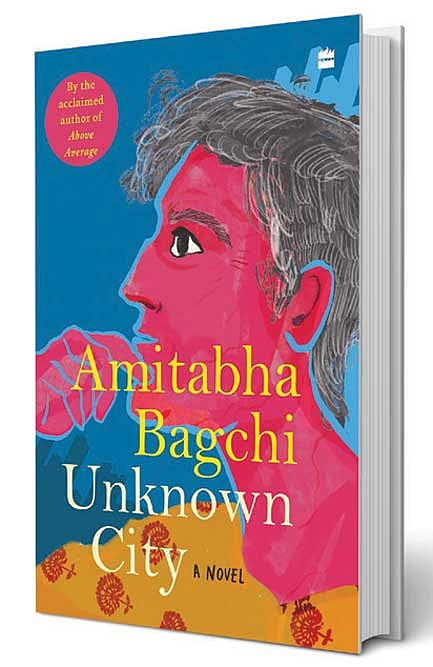The Inward Gaze

EVER SINCE I READ The Householder (2012) by Amitabha Bagchi over a decade ago, I’ve looked forward to reading more from him. Half the Night is Gone (2019), which won the DSC prize a few years ago, remains one of my favourite books for many reasons, most especially, for its gentle meditation on Indian masculinity as its story, set in the early 20th entury, explores a thicket of complex relationships between fathers and sons. That meditation is front and centre in Bagchi’s new novel, Unknown City, and while it has lost much of its gentleness, it is infused, instead, with a fervour that is compelling. The meditation on socially constructed gender is made more overt by the fact that the novel is placed squarely in the present, where contemporary discourse has been transformed by MeToo and other examinations of patriarchal and masculine behaviours.
Rather cleverly for what the book does, Bagchi reprises his youthful protagonist, Arindam Chatterjee, from his bestselling debut novel Above Average (2007), to be the tormented narrator of this story. Arindam is now in his fifties and looks back on his life with women, concerned that he has perhaps not ‘seen’ them fully in the fraught project of life and love between humans. Some readers will remember Arindam and his milieu—the serious, fairly ordinary boy who dreams of writing even as he studies Computer Science, his time in the raucous maleness of the IIT hostel and the more contemplative period as a graduate student in the US.
AIming High
20 Feb 2026 - Vol 04 | Issue 59
India joins the Artificial Intelligence revolution with gusto
The older Arindam speaks in an intensely personal voice as he examines his younger self critically, a voice that is often naive but always painfully honest, so much so that we could be tempted to read the novel as an autobiography. It might well be that much of what is written has been experienced by Bagchi but to reduce this perceptive work to simply a story of the writer’s own life, thinly disguised, would fail to acknowledge his immense skill as a creator of perfectly believable characters who have the same fears and aspirations as his readers.
Arindam thinks about the roles that he has played in his relationships with women and realises that most often, the person he wanted to be to them—intellectual companion, lover, comrade-in-arms, insecure writer, man-child—was not the person his partner wanted or needed at the time. What we learn through Arindam’s accounts of his relationships that did not work is that a generic ‘love’ between couples is not enough, what we all need are specific nuanced loves that fill the holes in our hearts and our selves.
Unknown City is clearly Bagchi’s most deeply felt book thus far. It is written with passion and with pain, with angst and with hope. How we construct our gendered behaviour has as much to do with ourselves as it does with those around us and the social mores we grow up with. And so, while Arindam understands that he is complicit with the patriarchy simply by virtue of being male, he becomes slowly aware that he has the capacity and the power to see, hear, think and act differently. Making that change is a choice. Not just for Arindam but, arguably, for all the men (and I hope there will be many) who read this book. After the soul-churning of Unknown City, I’ll be interested to see if Bagchi the (male) writer will inflect the women characters that he writes differently. Whether or not he does, I have a feeling that I will remain a fan of his earlier work.

